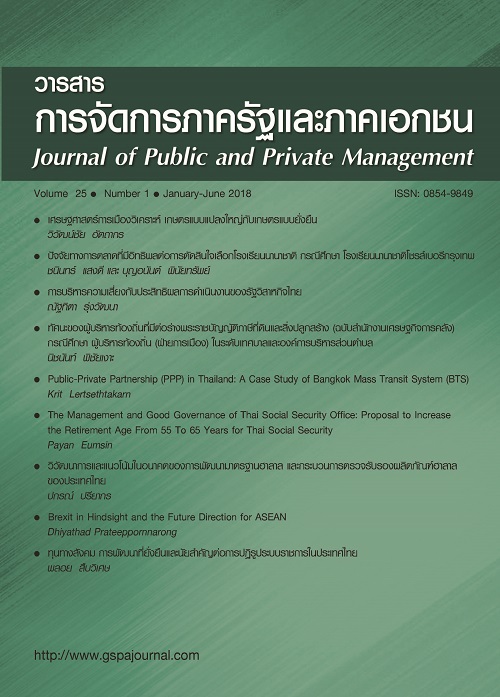Political Economy Analysis of Large-scale Farming and Sustainable Agriculture
Abstract
This article employs a political economy conceptual framework to analyze large-scale farming policy and sustainable agriculture, particularly as Thai agriculture is considered to be integrated within global capitalism. Under the umbrella of a corporate food regime, only a very few large corporations control the global food industry. Similarly in Thailand, the market share of agricultural and food products is mostly held by only a few large agricultural corporations which control all levels of Thai agriculture from upstream (state policy/agricultural production), to midstream (markets for agricultural input/markets for pre-processing agricultural products) and downstream (local market for agricultural products, convenience stores and export sector). The corporate food regime is advanced by the green revolution that uses agrochemicals and agricultural machinery which impact negatively on the environment, on food security, and on public health. Moreover, the market mechanism used by the major agricultural businesses which dominate in large-scale farming disadvantages small-scale farmers. Although the government claims that collective bargaining operates amongst the farmers, in fact, the small-scale farmer still lacks the freedom to participate and cannot be self-reliant. Furthermore, government authorities have concluded that agricultural transformation and outcomes under a large-scale farming policy in 2016 have been successful. This conclusion, however, may not be reliable, and may even be misleading to the public, because the large-scale farming policy was only implemented two years (2016-2017) ago. Indeed, research needs to be conducted to evaluate the significance of the agricultural program of large-scale farming nation-wide as public policy in development administration. The author proposes a framework for future research into sustainable agriculture in Thailand, according to the principles of sufficiency economy and the sustainable development goals of the United Nations.



